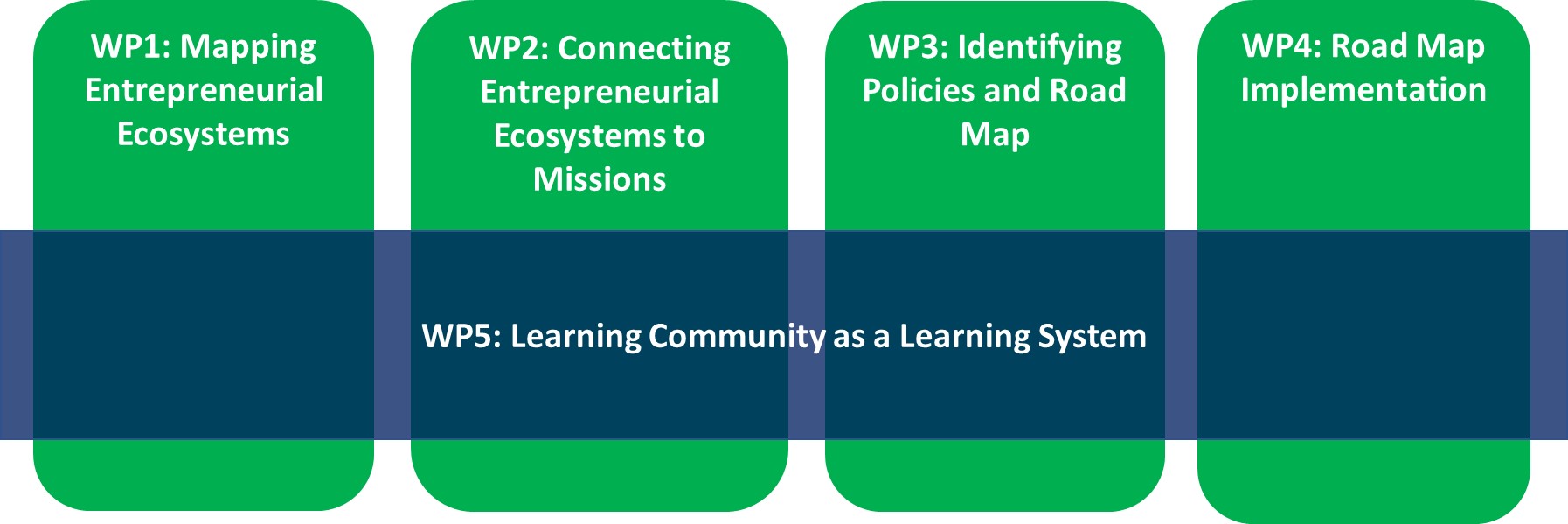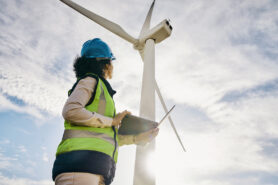Project outline
The ESMEE project aims to help improve the effectiveness of Regional Development Agencies in stimulating sustainable entrepreneurship to achieve societal missions.
Achieving societal missions requires radical innovations by entrepreneurs who are driven by sustainability concerns and can act outside the status quo. However, the Netherlands has a low level of sustainable entrepreneurship. Regional conditions must be improved to increase the prevalence and success of sustainable entrepreneurship.
The ESMEE project proposes a data-and-dialogue driven entrepreneurial ecosystem approach to improve the functioning of mission-driven innovation systems. We combine scientific analysis and systemic co-design to achieve impact and enable sustainable entrepreneurship to achieve societal missions.
Our team brings together scientists from Utrecht University, Rathenau Instituut, Haagse Hogeschool, and other stakeholders with Regional Development Agencies. We use a big data approach to identify sustainable entrepreneurship in regions and understand which regional conditions make them thrive.

Our focus is on two key missions of the Netherlands Regional Development Agencies – the energy transition and sustainable agriculture. Our aim is to jointly develop regional dashboards and road maps to improve regional conditions and increase the social earning capacity of regions, enabling sustainable entrepreneurs to realize much-needed innovations for societal missions around sustainability.
We achieve our goals through a set of work packages (WPs):
WP1: We develop the collection and analysis of unstructured public data about sustainable entrepreneurship (SE) and entrepreneurial ecosystems (EEs) in regions across Europe using natural language processing tools. WP1 addresses SE for social earning capacity.
WP2: Based on the results from WP1, we collect data about EEs and the incumbent socio-technical system (STS) for the two domain-specific missions. We analyze the relative importance of EE-elements and the STS for the emergence and success of SE. In addition, we integrate the insights gained in a coherent framework.
WP3: We analyze which policy interventions can be used to increase SE in EEs. Furthermore, the postdoc will analyze each EE and STS in the context of (regional) policy objectives. This will lead to the formulation of compatible road maps that regional stakeholders can implement.
WP4: The Regional Development Agencies (RDAs) will implement the data collection and analysis infrastructure within their organization. They will further develop and implement the proposed agendas (see WP5) together with the responsible policy makers.
WP5: Throughout the project, a learning community will be designed and studied. All project partners are active in the learning community together with other societal stakeholders. The learning community further articulates research questions, shares results, and formulates societal impact strategies.
Through these building blocks we help build a regional entrepreneurial ecosystem that can play a key role in achieving societal missions crucial for a sustainable future.

Funding: The project is funded for five years (2022-2027) through a Knowledge and Innovation Agenda grant awarded by the Netherlands Organization for Scientific Research (NWO) (grant. KICH1.MV01.20.014).


